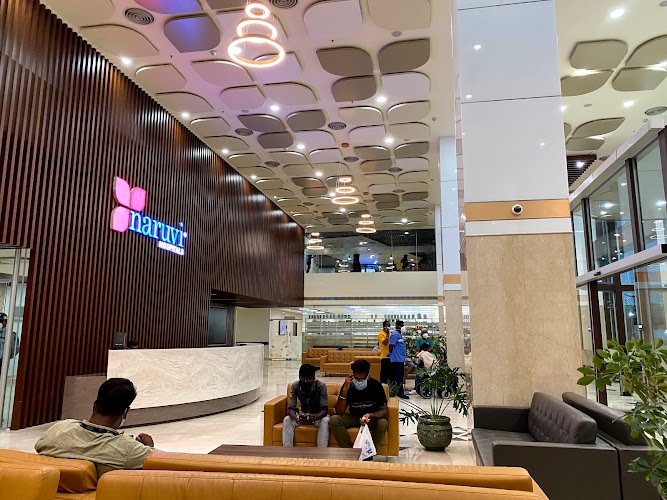Naruvi Hospitals is a destination for world class health care, with the latest in medical technology.
Address: Chennai – Bengaluru Highway, 72, Collector’s Office Rd, Vellore, Tamil Nadu 632004
Phone: 0416 666 1111
Google Map: Click
Today's Ranipet News
Earthquake in Ladakh
Paddy Flood Relief Fund – Token Issue Launched
Fury over not keeping Nalli bone curry
ISL Football
Naruvi is famous for The treatment of cardiac and thoracic surgeries involves a combination of medical management, surgical intervention, and post-operative care. The specific treatment approach depends on the patient’s condition, the type of surgery required, and their overall health.
Medical Management: Before considering surgery, patients with cardiac and thoracic conditions often undergo medical management to stabilize their condition and optimize their health for surgery. This may include medications to control blood pressure, manage heart rhythm abnormalities, improve heart function, and treat underlying diseases.
Preoperative Evaluation: Prior to surgery, patients undergo a thorough evaluation to assess their overall health and suitability for the procedure. This evaluation may involve blood tests, imaging studies, electrocardiograms (ECGs), stress tests, and consultations with various specialists.
Surgical Intervention: Cardiac and thoracic surgeries are performed by cardiothoracic surgeons in a specialized operating room equipped with advanced technology. The surgery aims to address the specific condition affecting the heart, lungs, or other structures in the chest.
Examples of surgical procedures:
Coronary Artery Bypass Grafting (CABG)
Heart Valve Repair or Replacement
Lung Resection (lobectomy, pneumonectomy)
Aortic Aneurysm Repair
Thymectomy
Ablation procedures for arrhythmias
Pacemaker or Implantable Cardioverter-Defibrillator (ICD) Placement
Post-operative Care: After surgery, patients are closely monitored in the intensive care unit (ICU) or a specialized cardiac or thoracic care unit. The post-operative care includes pain management, wound care, and monitoring for any complications.
Rehabilitation: Depending on the type of surgery and the patient’s condition, cardiac and thoracic surgery patients may undergo rehabilitation programs to aid in recovery and improve their functional abilities.
Medication and Follow-up: Patients are prescribed medications after surgery to support healing, manage pain, prevent infections, and control underlying medical conditions. Regular follow-up visits with the surgical team and other specialists are crucial for monitoring progress and managing any ongoing issues.
Lifestyle Modifications: Cardiac and thoracic surgery patients are often advised to make lifestyle changes, such as adopting a heart-healthy diet, quitting smoking, maintaining a healthy weight, and engaging in regular physical activity.
Long-term Management: Some patients may require ongoing medical management and periodic follow-up visits to monitor their heart or lung function and manage any potential complications.
The treatment plan is individualized for each patient, taking into consideration their specific medical history, condition severity, and overall health. The goal of cardiac and thoracic surgeries is to improve the patient’s quality of life, restore normal function, and increase longevity through effective treatment and comprehensive post-operative care.


buy levaquin generic – avodart usa order ranitidine 150mg generic
Your comment is awaiting moderation.